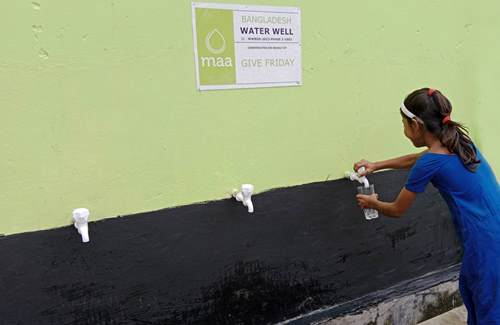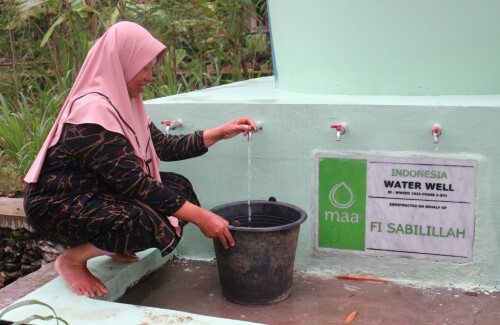You can adjust or opt out of recurring donations at any time.
Share this appeal
Community Water Systems: A Community Lifeline
A community water system isn't just a source of clean water; it's a lifeline. By contributing to one, you're ensuring that hundreds in rural and drought-affected regions have consistent access to this essential resource.
How Community Water Systems Work
Water, sourced from nearby lakes or boreholes, is pumped into a storage tank. In certain regions, extensive digging and piping are undertaken to ensure the seamless distribution of this clean water to beneficiaries. Designed for longevity, community water systems typically serve communities for an impressive 15-20 years.
MAA's Selection and Reporting
In response to on-ground needs and situational availability, MAA takes the responsibility of selecting the most impactful location for your community water system. Currently, MAA builds Community Water Systems in Indonesia, and Pakistan.
Once operational, our dedication to transparency is evident in a comprehensive report detailing the exact location, number of beneficiaries, photographs, and more. Additionally, you have the unique opportunity to personalise a plaque that's attached to the well, making your contribution even more memorable.
Take a 360 degree look at how our Community Water System is built.
heading of tab four
Content of tab four
Gallery
Related Campaigns
Related Articles
Cyclone Winston created havoc on the Island of Fiji causing 12m high waves and forceful winds flattening whole villages and cutting communication across the small Island. Thousands displaced and left with no shelter as the death toll continues to rise.
Almost 42,000 people remaining in Madaya are at risk of further hunger and starvation. The UN has received credible reports of people dying from starvation and being killed while trying to leave. On 5 January 2016, a 53 year-old man reportedly died of starvation while his family of five continues to suffer from severe malnutrition.
The story of Prophet Ibrahim teaches lessons on moral and ethical integrity, persistence in spreading the message of Islam, patience and endurance in the face of hardship, unwavering faith in Allah, and the importance of sacrifice.

.jpg?lang=en-AU&ext=.jpg)






.webp?lang=en-AU&ext=.webp)